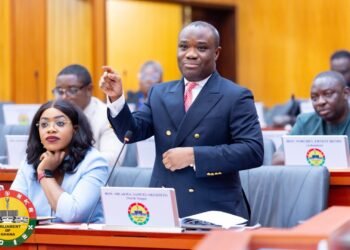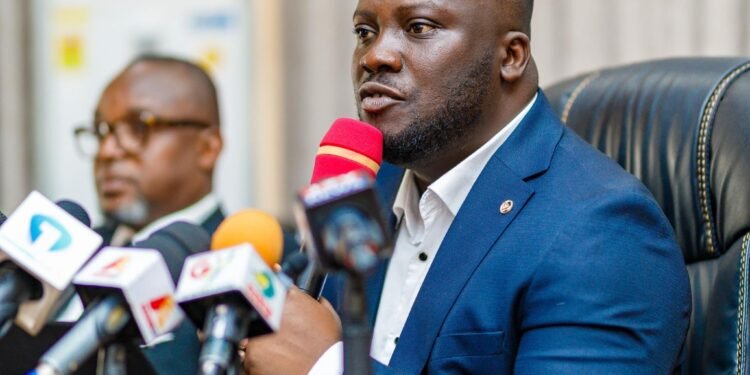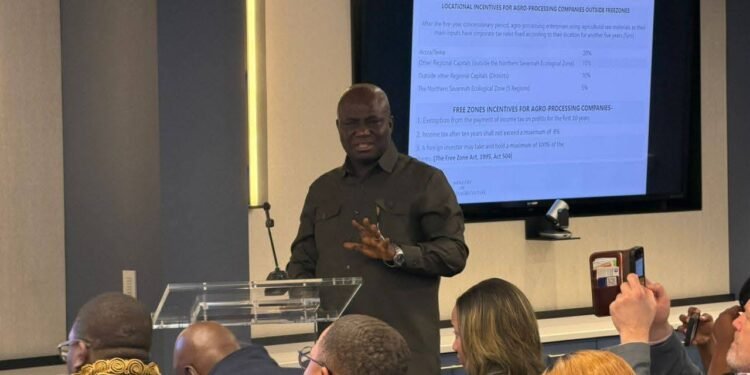The Supreme Court of Ghana has dismissed an objection raised by the Speaker of Parliament, Alban Bagbin, through his legal representative, Thaddeus Sory, seeking the recusal of Justice Ernest Gaewu in a case involving the Speaker’s authority to declare certain parliamentary seats vacant.
This ruling, delivered on Wednesday, October 30, comes amidst ongoing legal and political discourse surrounding the judiciary’s role in cases that potentially intersect with political allegiances.
Despite the Speaker’s insistence on recusal to preserve the case’s neutrality, the Supreme Court, in a ruling that has significant implications for Ghana’s legal landscape, decided against Sory’s motion.
The court defended its position, stating that a judge’s prior political associations do not automatically imply a lack of fairness or bias.
“Once a person is vetted and approved by Parliament, it means he’s competent to hear such cases.
“The court currently has in its ranks, a former General Secretary of the People’s National Convention (PNC) and a former NDC parliamentary candidate.”
Supreme Court of Ghana
The ruling underscored the judiciary’s stance that judges’ personal or political histories should not serve as a disqualification for their role in impartial adjudication.
This high-stakes case highlights the complexities of judicial independence in Ghana’s political landscape, where the intersections between law and politics are often scrutinized. For some, the court’s decision to retain Justice Gaewu on the bench signals a commitment to judicial independence, ensuring that judges are not disqualified based on previous associations.
However, for others, the decision raises questions about whether political history might compromise public confidence in judicial outcomes, particularly in cases involving sensitive political issues like the Speaker’s powers and parliamentary seat vacancies.
The case also underscores an ongoing concern within Ghana’s political structure: the delicate balance between the judiciary’s autonomy and the perceived encroachment of political affiliations on judicial impartiality.
Objection and Argument for Recusal

The objection, raised in court by Thaddeus Sory, was rooted in Justice Gaewu’s past political ties.
In his remarks, Sory noted, “He was known to be associated with the New Patriotic Party and, in fact, was a parliamentary candidate in one of their constituencies in the Volta Region.”
The legal counsel suggested that this association might compromise Justice Gaewu’s impartiality in ruling on a case so deeply rooted in parliamentary authority and political dynamics.
Moreover, Speaker Bagbin’s legal team pointed out that ensuring fairness in such politically charged cases requires a panel devoid of individuals with prior political engagements that could tilt their perception or rulings.
“Justice requires not only impartiality but the appearance of impartiality,” Sory argued, echoing a sentiment that has become increasingly relevant in discussions about the judiciary’s independence.
The dismissal of the objection against Justice Gaewu’s empaneling reaffirms the Supreme Court’s stance that a judge’s political history should not serve as grounds for questioning their impartiality. However, the case brings to the forefront the ongoing debate in Ghana regarding the judiciary’s role in politically sensitive cases.
As the Supreme Court proceeds with hearings, all eyes will be on how the judiciary navigates this complex terrain, with outcomes that could shape not only public trust in Ghana’s courts but also the broader relationship between law and politics in the country.
The ruling marks a pivotal moment for Ghana’s legal system, reinforcing the need for clear standards in addressing the intersection of judicial appointments and political history while ensuring that the judiciary remains a bastion of impartiality in a highly politicized environment.
READ ALSO: PIAC Addresses Ghana’s Declining Oil Production Crisis























